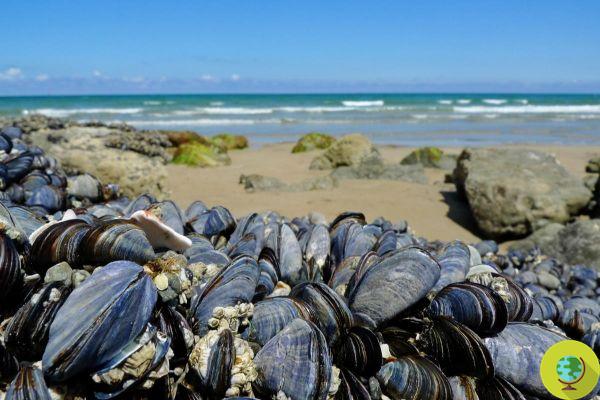
Climate change is altering the oceans to the point of jeopardizing the ability of mussels to remain attached to the rocks
He is about to end up run over, his mother saves himI climate changes are altering the oceans to the point of jeopardizing the capacity of mussels to remain attached to the rocks. A new study conducted by Purdue University has found that marine chemistry is changing very fast, even to the detriment of these animals.
Their powerful byssus, the thread by which they cling to the rocks, is less and less strong. And this loss of capacity is attributable to the changing climate and its consequences.
THEacidification of marine waters in fact it could alter the availability of iron, which is essential for the formation of the byssus and the plates with which the mussels bind to the rocks. To find out, the researchers conducted a series of tests in which they examined the behavior of mussels under different conditions, with different amounts of iron in the water.
Jonathan Wilker, a professor of chemistry and materials engineering at Purdue University, has spent years studying how mussels secrete sticky plaques that can stick to wet surfaces. His research group uses these discoveries to create new biomimetic adhesives used in various industries, from electronics to cosmetics.
"We wanted to understand how the mussel's access to environmental iron could affect the formation and performance of their adhesive system," he said.
Thus they controlled the behavior of mussels in three environments, in low, regular and excess iron waters.
“We found there was a general trend: the strength of the mussels followed the iron levels in the surrounding seawater. When there was less iron, the bond was weaker. More iron than normal made the bond stronger. At an extreme excess of iron, however, the performance decreased ”.
According to the study authors, there is a link with climate change. Most of the iron in seawater is particulate matter, in solid form. Mussels are filters and collect their food, as well as this iron, by filtering the water. However, as the oceans become more acidic, iron changes from solid to more dissolved forms.
In the years to come, if less iron is present in solid form, the mussels will have a hard time getting the quantities they need to produce the byssus.
The study was published in Environmental Science & Technology.
Sources of reference: Purdue University, Environmental Science & Technology
READ also:
Mussel reefs increase the risk of exposure and consumption of microplastics. I study
The sea is too hot: the mussels are cooking in their own shell


























